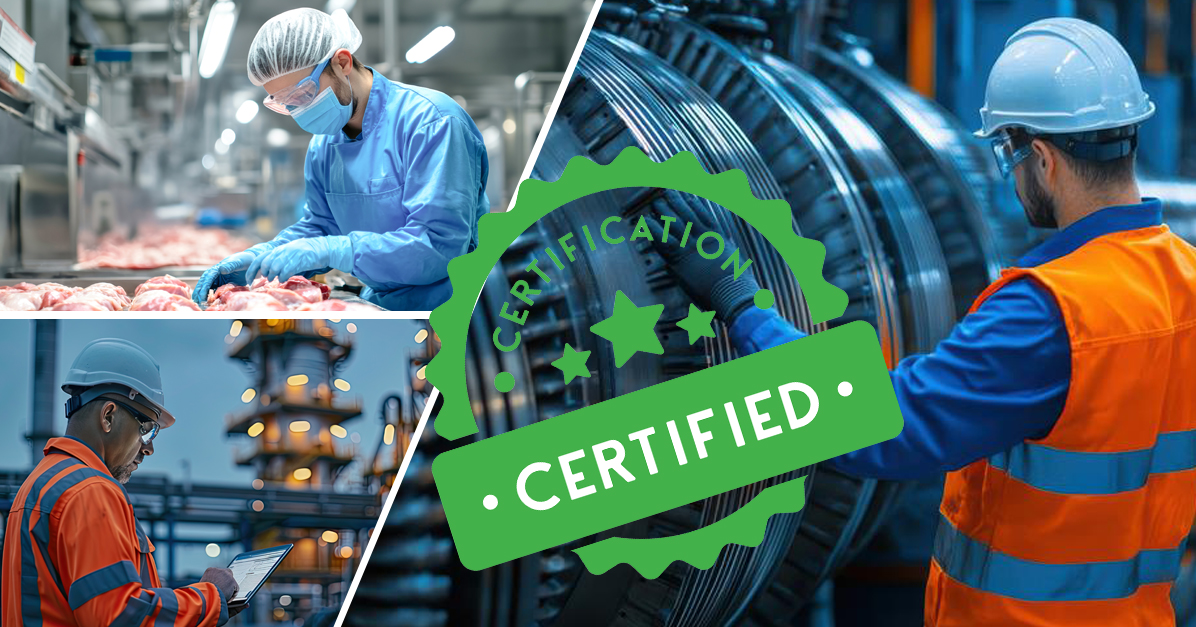Standards and Certifications: Key Access to European Markets for Manufacturers and Suppliers
Compliance with standards and approvals is a priority for any industrial supplier aiming to position itself in the European market. In an environment where quality, safety, and environmental responsibility are essential, standards such as FDA, WRAS, DVGW, CEN, ISO, and NSF play a central role. These certifications enable companies to ensure the reliability of their products, maintain competitiveness, and access both local and international markets. Discover the importance of these certifications, their regional specificities, and how they impact industrial strategies in Europe.

Why Are Standards and Certifications Crucial?
For manufacturers, meeting standards and certifications is essential for:
- Accessing European Markets: Many certifications, like the CE marking, are required to sell products in European countries, indicating compliance with European Union standards.
- Gaining Customer Trust: Certifications provide a guarantee of quality and safety, a definite advantage in convincing buyers or end-users.
- Meeting Environmental Requirements: With growing environmental concerns, certifications also confirm a product’s limited impact on the environment.
Main European Standards and Certifications for Industrial Conformity
| Standard / Certification | Application Field | Main Requirements | To find out more |
|---|---|---|---|
| Marquage CE | Essential for sales in the EU; guarantees compliance with safety directives. | Access to the European market; perceived as a mark of reliability and safety. | Consult our markets pages |
| ISO | International standards, such as ISO 9001 and EN 9120. | A guarantee of quality recognised throughout Europe; reinforces the credibility and competitiveness of products. | Samaro, ISO 9001 and EN 9120 certified |
| FDA | American standard for materials in contact with food and pharmaceutical products. | Allows you to meet health requirements and access international markets. | See our selection guide for FDA products |
| UL 94 | American standard for the flammability resistance of materials. | Often required in Europe for materials exposed to the risk of fire. | View our article |
| EN 45545-2 | Fire safety standard for railway materials (HL1, HL2, HL3). | Essential for the conformity of railway materials on the European market. | See our railway market page |
| DVGW | German certification for gas and water products. | Required in Germany, it guarantees safety and sustainability in these sectors. | View our article |
| NSF 51 & NSF 61 | NSF 51 for food processing materials, NSF 61 for drinking water. | International recognition for food and drinking water safety. | See our selection guide for NSF 51 NSF 61 products |
| WRAS | British certification for drinking water. | Ensures that materials in contact with drinking water are safe, recognised in Europe. | See our selection guide for WRAS products |
| DNV GL | Standard for the maritime and energy industries (KTW 1.3.13, W270, W534). | Standard for the maritime and energy industries (KTW 1.3.13, W270, W534), certifying the safety and performance of products in complex environments. | See our Marine market page |
| KIWA | Dutch certification for water, gas and construction. | Dutch certification for water, gas and construction, a guarantee of safety and sustainability, facilitating access to European markets. | See our selection guide for KIWA products |
| Lloyd’s Register | Certification for marine and industrial equipment. | Renowned for its reliability in Europe’s maritime and industrial sectors. | See our Marine market page |
| EN 549 & EN 682 | EN 549 for elastomer materials (gas); EN 682 for seals (gas and water) | Compliance with safety standards for gas and water equipment. | See our hydrogen market page |
| PMUC (Products and Materials for Use in Power Plants) | Chemical compliance (limiting halogens and sulphur) to prevent corrosion and guarantee the safety of EDF installations | Essential for products intended for the nuclear sector | View our article |
| BAM (Bundesanstalt für Materialforschung und -prüfung) | Hazardous products, transport and safety – Safety tests for hazardous materials and quality certification | Important for companies handling and transporting hazardous materials in Europe | View our article |
Regular Updates: A Strategic Challenge for Manufacturers
European standards and certifications are regularly updated to meet new technological, ecological, and safety requirements. While these updates are necessary, they present several challenges:
- Product Adaptation: Manufacturers often need to adjust their products to remain compliant.
- Investment in Certification: Each update requires re-certification testing, which can represent a significant cost.
- Continuous Training: Technical and commercial teams must stay informed of regulatory changes to adjust their offerings and meet market requirements.
For companies, anticipating these regulatory changes is crucial to maintaining competitiveness. Additionally, compliance with new standards provides a lever for positioning as a leader in evolving areas, such as sustainability or enhanced safety.
Conclusion
These certifications are more than just standards; they are the passport for any product looking to enter the European Union or international markets. Incorporating these standards into product and export strategy is a guarantee of quality and trust, enhancing brand image while ensuring user safety.